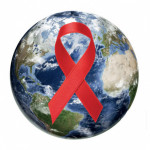A new analysis of the global iPrEx study, which proved Truvada’s (tenofovir/emtricitabine) efficacy as pre-exposure prophylaxis (PrEP), found that while average adherence to the drug was quite poor, American participants tended to adhere relatively well. This suggests that if the study had been conducted only among Americans, who made up just 9 percent of its active arm, the overall efficacy rate would have been significantly higher than 44 percent. While the average adherence rate at week 8 of the study was 55 percent, those in Boston and San Francisco adhered at respective rates of 72 percent and 90 percent at that time. Among a cohort of San Francisco participants followed for 72 weeks, 27 percent had inconsistently detectable Truvada and 67 percent always had detectable drug levels. Those figures were generally reversed among participants in Peru and Ecuador, who made up 68 percent of active-arm participants in the study.
Advertisement
Advertisement
Advertisement






Comments
Comments